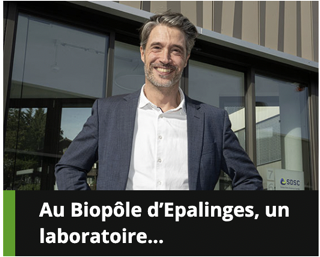Data-Driven Control Methods in Energy and Manufacturing
Building on its mission to enable data-driven science and innovation, the Swiss Data Science Center (SDSC) co-organized a workshop to reflect on data-driven control methods for energy and manufacturing, together with Empa (Swiss Federal Laboratories for Materials Science and Technology), and Bühler Group. The workshop was held on September 18th, 2024 at Empa Academy in Dübendorf, Switzerland.
Controlling processes is a critical aspect of industrial systems, playing a pivotal role in maintaining process efficiency and safety and ensuring the quality of industrial products. Control methods are also used to optimize energy usage,for example, by controlling the operation of a building’s heating system and electric vehicle charging. Existing strategies range from simple feedback control loops to complex algorithms incorporating predictive models and artificial intelligence.
The workshop’s objectives were to review the current state-of-the-art in data-driven control methods. Participants, who included key actors from academia and industry, identified and discussed the existing challenges and opportunities related to their adoption in a production environment.
· Victor Van Wymeersch, from Galaxus AG, and Giulio Romanelli from SDSC introduced the theoretical framework. We primarily have three families of methods for controlling aprocess, each with a different degree of complexity: Rule-Based (RB)controllers, Model Predictive Controls (MPC), and Reinforcement Learning (RL). While RB controllers, like PID methods, are widely used in industrial control systems, the other two families are less adopted. MPC methods offer more interpretability and allow the optimization of multiple objectives simultaneously. The drawbacks of these methods are the model dependency and the slowness in solving the optimization problem, as it has to be repeated at any point after the optimal trajectory is updated. RL methods can be used whenever possible to describe an environment in terms of state-action-reword. Due to their trial-and-error nature, these methods are more difficult to train, requiring more data than other control methods. However, they can be particularly useful in environments where the time for decisions is short.
· Matthias Graeber and Marco Gallo from Bühler AG and Bühler Scherler presented applications of these control methods in manufacturing and energy, focusing on the gains in terms of KPIs (energy saved and money) and providing the business perspective. They underlined the importance of building trust towards advanced AI solutions in typically quite conservative operational environments. This is realized through a step-by-step adoption, which can eventually lead to fully automated controls and so-called smart manufacturing. Julien Eberle from Arcanite showed how implementing these solutions could become real when a solid backend supports it and MLOps best practices are adopted.
· Maryam Kamgarpour from EPFL Sycamore Laboratory presented the evolution of control methods in the AI age, with applications of Reinforcement Learning in robotics, autonomous driving, and electricity markets. Uncertainty is an important aspect that needs to be addressed to improve the safety of Reinforcement Learning decisions.
· In his keynote, Zoltan Nagy from Texas University in Austin reviewed the challenges and opportunities in using control methods for building energy management. Grid-interactive buildings can provide the energy flexibility needed for the energy transition. He compared the usage of MPC and RL approaches for this,showing how they can achieve the same results on small-scale problems. RL is most favorable when complexity increases due to the modeling effort and computational costs of MPCs. However, the ‘high-data’ requirement of the RL algorithm is a crucial aspect that needs to be tackled when these algorithms are applied in the building domain.
· Carl Remlinger from SDSC presented how a modular approach can achieve the scalability of advanced control methods like RL for building energy management and demonstrated its applicability to areal building at Empa (NEST).
· Felix Bünning from Viboo shows how well MPC methods work on actual buildings and can be trained with only 1-2 weeks of real data collected in situ. While acting with the controller on the actuators (thermostats) installed on the radiators, they can save up to 40% of energy, making it comparable with the performances of a retrofitted building.
The workshop ended with a round table discussion about the challenges and the opportunities towards a real-world implementation of data-driven control methods. After a whole day deep dive into advanced data driven control methods, the experts and the public reflected on their advantages with respect to rule-based heuristic methods, the acceptance of these methods by the business and the main remaining obstacles towards their adoption.
About the SDSC:
The Swiss Data Science Center (SDSC) is a strategic focus area of the ETH domain, with EPFL and ETH Zurich as founding partners, developing into a National Research Infrastructure in 2025. Its mission is to support academic labs, hospitals, industry and public sector stakeholders, including cantonal and federal administrations, through their entire data science journey, from the collection and management of data to machine learning, AI, and industrialization. With a large multidisciplinary team of professionals across three locations (Lausanne, Zurich, Villigen), the SDSC provides expertise and services to various domains, such as health and biomedical sciences, energy and sustainability, climate and environment, and large-scale scientific infrastructures. More: www.datascience.ch
Contacts:
Uta Ünal, Head of Communications & Events
Catherine Hugon, Head of Executive Affairs





